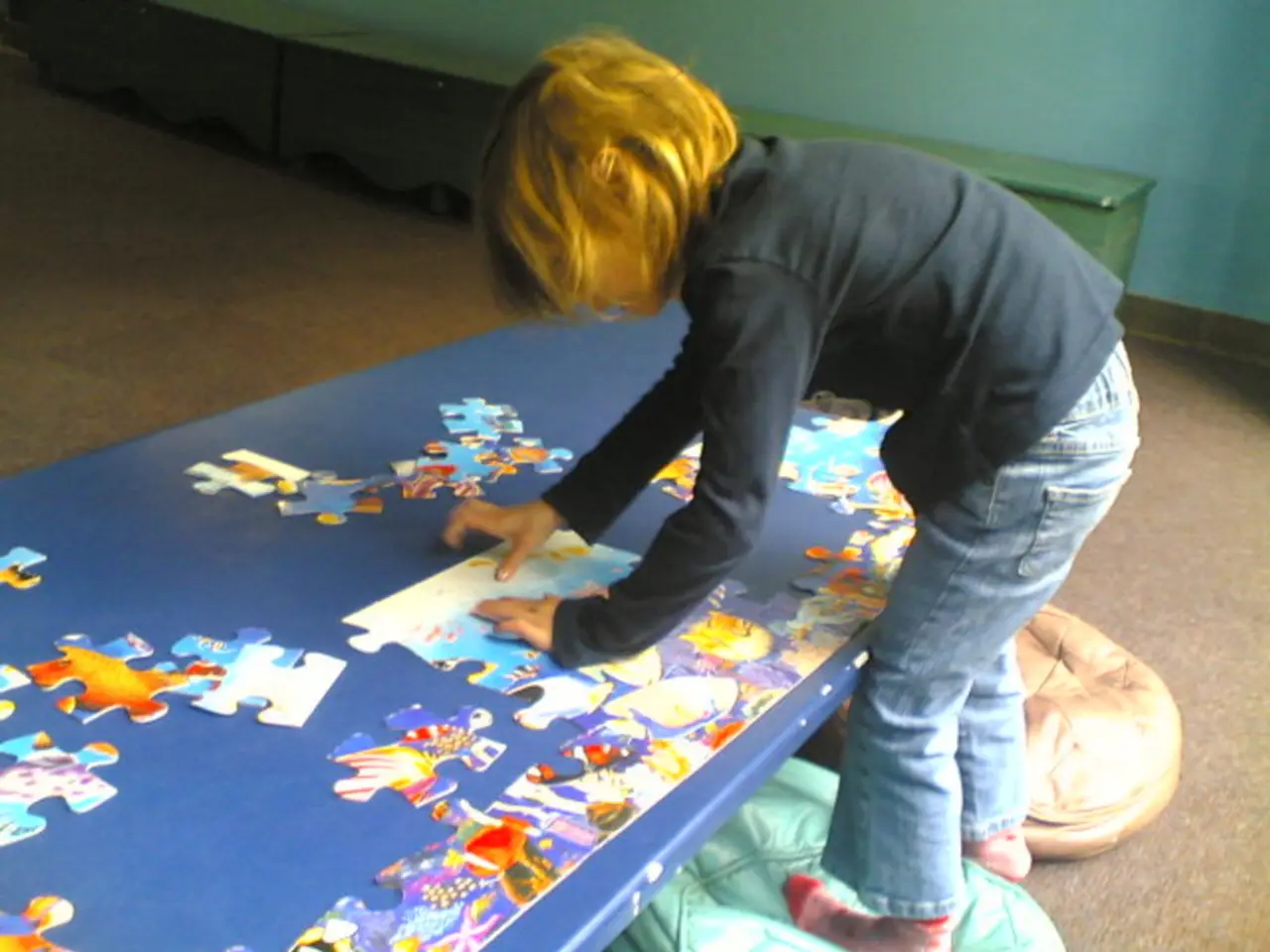Domestic Learning Approaches Fostering Critical Thinking and Issue Resolution
In the realm of early childhood development, teaching problem-solving skills is a crucial aspect that equips young minds with the tools they need for a successful future. Here are some practical strategies for parents to help their preschoolers develop these essential skills at home.
First and foremost, it's essential to model problem-solving behaviour by thinking aloud when faced with challenges. This allows children to see the process in action, learning from your thought process as you navigate obstacles.
Asking open-ended questions, such as "What else could you try?" or "Why do you think that happened?", stimulates thinking and reflection, encouraging children to delve deeper into the problem at hand.
Encouraging trial and error is another effective strategy. Help them understand that making mistakes is part of learning and discovering solutions. Breaking problems into manageable parts and guiding them to find their own solutions promotes autonomy and confidence.
Offering problem-solving activities like puzzles, building blocks (such as LEGO), sorting/categorizing objects, and role-playing scenarios helps develop critical thinking, creativity, and social skills. Structuring daily routines predictably teaches sequencing and concepts, building foundational problem-solving skills.
Providing opportunities for independent and unstructured play with art supplies, sensory materials, or pretend-play props enables children to explore their ideas and solutions freely. Using everyday situations as teaching moments, such as involving children in finding lost items or helping plan a simple meal, and encouraging decision-making with choices around snacks or activities, further enhances problem-solving abilities.
Activities like setting up simple projects (e.g., gardening, cooking) teach practical problem-solving while building patience and following instructions. After trying a solution, help the child evaluate how well it worked and, if needed, think of alternative approaches—reinforcing the problem-solving cycle.
Remember, every chance to work on problem-solving skills is important. Encouraging children to help with decisions or problems is a great way to teach problem-solving skills. Learning from mistakes is a valuable lesson, and by letting your child deal with the results of their actions, you teach them that failure is part of learning.
Engaging in problem-solving games and activities can make the learning process fun and engaging for children. Multiplayer games promote teamwork and collaboration, improving problem-solving skills in a social setting. Regularly practicing these steps helps your child become good at solving problems.
The National Association of Colleges and Employers Job Outlook 2022 survey shows that 86% of employers want problem-solving skills, emphasising the importance of nurturing these skills in our young ones.
By teaching problem-solving skills to preschoolers, we empower them to solve their own problems, boosting their independent thinking and problem-solving skills. Patience and a willingness to let children take the lead in finding solutions are key to nurturing their problem-solving abilities.
Encourage them to gather data and ask questions, guide them in evaluating each solution's pros and cons, and help them spot the root cause of the problem. Encouraging creativity, thinking outside the box, and embracing divergent thinking are also essential components of effective problem-solving.
Using open-ended toys, activities like crafting, and playing with everyday objects help kids think creatively. Encourage them to identify their feelings as the first step to problem-solving, and allow failures—letting your child fail can teach them a lot.
Lastly, remember that asking for help is a valuable skill itself. By showing them how to ask for help, you teach them the importance of asking for help and not being afraid to seek help when needed.
By implementing these strategies, parents can foster critical thinking, creativity, and independence in their preschoolers, setting them up for a lifetime of effective problem-solving.
Build on the concept of emotional intelligence and encourage children to identify their feelings as the first step to problem-solving, allowing them to understand their emotions better and tackle problems more effectively.
In the realm of education-and-self-development, nurturing a lifestyle that values respect, equality, and continuous learning can reinforce the importance of problem-solving skills, fostering confident and empathetic individuals.




